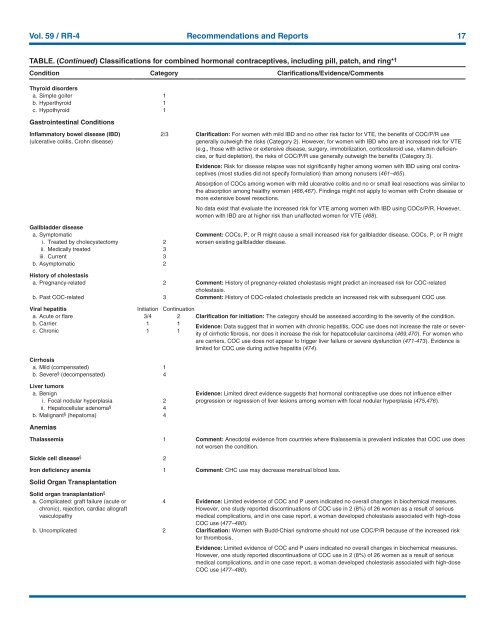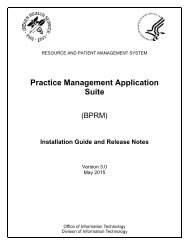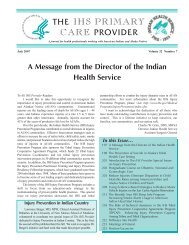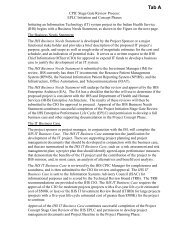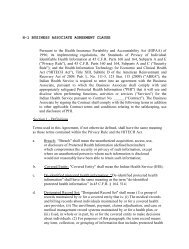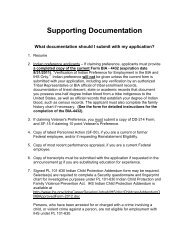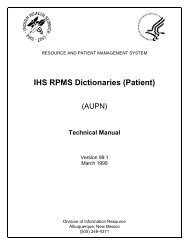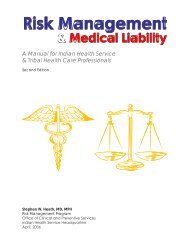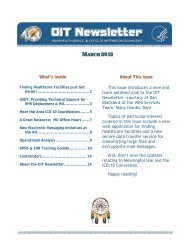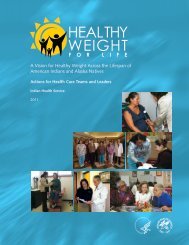CDC Article-US Medical Eligibility Criteria for Contraceptive Use, 2010
CDC Article-US Medical Eligibility Criteria for Contraceptive Use, 2010
CDC Article-US Medical Eligibility Criteria for Contraceptive Use, 2010
Create successful ePaper yourself
Turn your PDF publications into a flip-book with our unique Google optimized e-Paper software.
Vol. 59 / RR-4 Recommendations and Reports 17<br />
TABLE. (Continued) Classifications <strong>for</strong> combined hormonal contraceptives, including pill, patch, and ring* †<br />
Condition Category Clarifications/Evidence/Comments<br />
Thyroid disorders<br />
a. Simple goiter 1<br />
b. Hyperthyroid 1<br />
c. Hypothyroid 1<br />
Gastrointestinal Conditions<br />
Inflammatory bowel disease (IBD)<br />
(ulcerative colitis, Crohn disease)<br />
2/3 Clarification: For women with mild IBD and no other risk factor <strong>for</strong> VTE, the benefits of COC/P/R use<br />
generally outweigh the risks (Category 2). However, <strong>for</strong> women with IBD who are at increased risk <strong>for</strong> VTE<br />
(e.g., those with active or extensive disease, surgery, immobilization, corticosteroid use, vitamin deficiencies,<br />
or fluid depletion), the risks of COC/P/R use generally outweigh the benefits (Category 3).<br />
Evidence: Risk <strong>for</strong> disease relapse was not significantly higher among women with IBD using oral contraceptives<br />
(most studies did not specify <strong>for</strong>mulation) than among nonusers (461–465).<br />
Absorption of COCs among women with mild ulcerative colitis and no or small ileal resections was similar to<br />
the absorption among healthy women (466,467). Findings might not apply to women with Crohn disease or<br />
more extensive bowel resections.<br />
No data exist that evaluate the increased risk <strong>for</strong> VTE among women with IBD using COCs/P/R. However,<br />
women with IBD are at higher risk than unaffected women <strong>for</strong> VTE (468).<br />
Gallbladder disease<br />
a. Symptomatic Comment: COCs, P, or R might cause a small increased risk <strong>for</strong> gallbladder disease. COCs, P, or R might<br />
i. Treated by cholecystectomy 2<br />
worsen existing gallbladder disease.<br />
ii. <strong>Medical</strong>ly treated 3<br />
iii. Current 3<br />
b. Asymptomatic 2<br />
History of cholestasis<br />
a. Pregnancy-related 2 Comment: History of pregnancy-related cholestasis might predict an increased risk <strong>for</strong> COC-related<br />
cholestasis.<br />
b. Past COC-related 3 Comment: History of COC-related cholestasis predicts an increased risk with subsequent COC use.<br />
Viral hepatitis Initiation Continuation<br />
a. Acute or flare 3/4 2 Clarification <strong>for</strong> initiation: The category should be assessed according to the severity of the condition.<br />
b. Carrier 1 1<br />
Evidence: Data suggest that in women with chronic hepatitis, COC use does not increase the rate or severity<br />
of cirrhotic fibrosis, nor does it increase the risk <strong>for</strong> hepatocellular carcinoma (469,470). For women who<br />
c. Chronic 1 1<br />
are carriers, COC use does not appear to trigger liver failure or severe dysfunction (471-473). Evidence is<br />
limited <strong>for</strong> COC use during active hepatitis (474).<br />
Cirrhosis<br />
a. Mild (compensated) 1<br />
b. Severe § (decompensated) 4<br />
Liver tumors<br />
a. Benign Evidence: Limited direct evidence suggests that hormonal contraceptive use does not influence either<br />
i. Focal nodular hyperplasia 2<br />
progression or regression of liver lesions among women with focal nodular hyperplasia (475,476).<br />
ii. Hepatocellular adenoma § 4<br />
b. Malignant § (hepatoma) 4<br />
Anemias<br />
Thalassemia 1 Comment: Anecdotal evidence from countries where thalassemia is prevalent indicates that COC use does<br />
not worsen the condition.<br />
Sickle cell disease § 2<br />
Iron deficiency anemia 1 Comment: CHC use may decrease menstrual blood loss.<br />
Solid Organ Transplantation<br />
Solid organ transplantation §<br />
a. Complicated: graft failure (acute or<br />
chronic), rejection, cardiac allograft<br />
vasculopathy<br />
4 Evidence: Limited evidence of COC and P users indicated no overall changes in biochemical measures.<br />
However, one study reported discontinuations of COC use in 2 (8%) of 26 women as a result of serious<br />
medical complications, and in one case report, a woman developed cholestasis associated with high-dose<br />
COC use (477–480).<br />
b. Uncomplicated 2 Clarification: Women with Budd-Chiari syndrome should not use COC/P/R because of the increased risk<br />
<strong>for</strong> thrombosis.<br />
Evidence: Limited evidence of COC and P users indicated no overall changes in biochemical measures.<br />
However, one study reported discontinuations of COC use in 2 (8%) of 26 women as a result of serious<br />
medical complications, and in one case report, a woman developed cholestasis associated with high-dose<br />
COC use (477–480).


